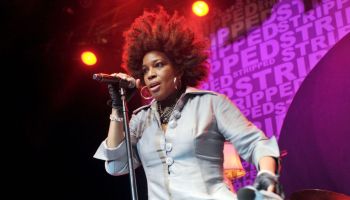There is indeed a mystique and allure to the women of Brazil, but ever since the arrival of 600,000 foreign visitors to the 2014 World Cup, many are saying they don’t appreciate the attention the aforementioned visitors are bringing.
RELATED: In Brazil, Racism Against Afro-Brazilians Persists
Since the start of the Cup, the overwhelmingly male crowds have often brought with them a perception of Brazilian women as hypersexual vixens. This is played out with cat calls, leering, whistles, and sometimes even groping that many have complained about.
American journalist Vincent Bevins, covering the Cup for Brazilian newspaper Folha do Sao Paulo, described the atmosphere as a “special” one, where his two female Brazilian friends in Fortaleza were heckled, harassed, and “received about 50 marriage proposals from groups of men from around the world.”
“Unfortunately, an old stereotype is still present in the minds of some international gringos,” Bevins writes, “and many seem to have come here with the wrong idea.”
For Vivian Zeni, a journalist and student from Sao Paulo, much of the nefarious assumptions about Brazilian women fall along racial lines: She told me that since the Cup began, she has been subjected to “abuse” from foreigners who seem to think that Black Brazilian women, in particular, are all prostitutes. “They say all types of things as we walk down the street,” she said, “some of them are very aggressive, using bad words with sexual connotations.”
But many Brazilian women say that this isn’t new.
According to them, the World Cup has only exacerbated this behavior that they are already subjected to regularly in their country, “Foreigners who purchase this image of Brazilian women and come to our country believing that we are here to serve them (including many of them coming to feed a network of sexual exploitation that often victimizes children and adolescents in situations of social vulnerability) are certainly part the problem,” wrote journalist Aline Valek in an editorial for Brazilian newsmagazine Carta Capital, “[as] much as the Brazilians, who consciously or unconsciously reinforce this machismo, [and] undress us in not only clothing, but humanity.”
SOURCE: NewsOne.com
Article and Picture Courtesy of News One
















